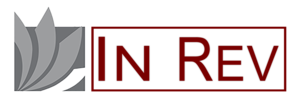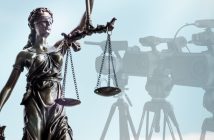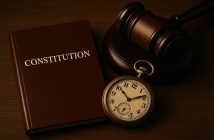NOTE
By: Jennifer Colón Rodríguez*
Introduction
Campaign funding is one of the most controversial topics when discussing democracy. To understand the private interests that will wield control over the public policy-making process after a candidate wins an election, a key question must be asked: who has funded their political campaigns? In the United States, for example, there is a dependence on big funders. Harvard Law professor Lawrence Lessig argues this dependence “corrupts our representatives”,[efn_note]LAWRENCE LESSIG, THEY DON’T REPRESENT US: RECLAIMING OUR DEMOCRACY 58 (2019). [/efn_note] and that to stop it, regulations against bribery are not enough. Congress should regulate Tweedism.[efn_note]Id. at 48. [/efn_note] Lessig coined the word tweeds to describe the people who have the power to select those who will be on the ballot. He explains that:
The “tweeds” within the political system are thus the people in that system who get to nominate the candidates who get to run in that system. They are the veto point. They are the interest that the candidates must satisfy before the candidates get the chance to persuade the voters.[efn_note]Id. at 49. [/efn_note]
Tweedism was inspired by a statement attributed to American politician William M. Tweed who said: “I don’t care who does the electing, as long as I get to do the nominating”.[efn_note]Id. at 48.[/efn_note] This statement clearly challenges the principles of representative democracy. Tweedism undermines the purpose of electoral systems in a representative democracy, because it trumps the idea of a government for the people and by the people. These systems are defined by Dr. Fako Johnson Likoti as the “mechanisms by which the preferences of citizens are translated into seats in representative institutions”.[efn_note]Fako Johnson Likoti, The 2007 General Election in Lesotho: The Application and the Challenges of the Electoral System, 10 African Studies Quarterly 57, 57 (2009)(emphasis added). [/efn_note] Due to the fact that campaign costs have risen significantly, my argument is that tweedism is in full display in the United States,[efn_note]Saritza Rivera Vega, El financiamiento de campañas políticas en Puerto Rico: límites y posibilidades después de Citizens United, 85 Rev. Jur. UPR 1233, 1248 (2016). [/efn_note] and in Puerto Rico.[efn_note]Id. at 1252. [/efn_note] In this article, I will examine the effects of tweedism and current campaign finance regulation in Puerto Rico. In addition, put forward some suggestions to improve the regulations concerning political campaigns in Puerto Rico as a mechanism to prevent tweedism.
I. The effect of tweedism and proposed solutions
A. Do our representatives represent us?
In the United States, “the ordinary member of Congress spends anywhere between thirty percent and seventy percent of his or her time raising money for his or her campaign from big funders primarily”.[efn_note]Lessig, supra note 1, at 57. [/efn_note] Even more shocking, as University of Puerto Rico Law Review author Saritza Rivera Vega remarks:
As of today, in the 2016 presidential elections, these citizens [big donors]give more than half the political contributions donated to presidential candidates. Most of these elite donors are citizens who are out of touch with the social and financial reality of the rest of the American people. These donors make four times the salary of the average American.[efn_note]Rivera Vega, supra note 6, at 1238 (quoting Nicholas Confessore et al., The Families Funding the 2016 Presidential Election, N.Y. TIMES, https://www.nytimes.com/interactive/2015/10/11/us/politics/2016-presidential-election-super-pac-donors.html (last visited February 21, 2021) (translation ours). [/efn_note]
At this point, you might be asking yourself, “what is the problem?” Big donors, at the end of the day, are still citizens exercising their right to contribute to, support, and vote for their representatives in government. However, the disproportional nature with which these big donors can influence not just who will be nominated for election, but also the candidates’ platforms and eventual careers, is a serious concern faced by democracy and its “equitable” nature. In fact, it is no secret that big donors already demonstrate a corrupting and biased effect on our elected officials.[efn_note]LESSIG, supra note 1, at 58. [/efn_note] A recent example is Congressman Tom Marino, a lawmaker who “[has]taken money from pharmaceutical companies”.[efn_note]Id. at 46. [/efn_note] Lessig notes that Marino was “nominated to be President Trump’s drug czar, [but]had to withdraw when it was discovered that he had pressed legislation that made it harder for the Drug Enforcement Administration to move against those illegally distributing opioids”.[efn_note]Id. [/efn_note] Evidently, Marino received funding from pharmaceutical companies to run his campaign as legislator before he was nominated to be the drug czar. However, his link with pharmaceutical companies biased his criteria in the decision-making process. In other words, Marino took advantage of his position as drug czar to push forward legislation that benefits those who once financed his political career. What happened with Marino was not bribery, as Lessig argues, he participates in “a much more subtle. . . technique”;[efn_note]Id. at 48. [/efn_note] the already mentioned tweedism.
Consequently, countries need to make more of an effort than merely regulates bribery involving public officials in order to guard against the effect of big donor’s contributions on elected officials.[efn_note]Id. at 60. [/efn_note] As Lessig mentions “[O]ur Congress is not bribed. Our Congress is influenced through a much more subtle—and much more effective— technique than that. We must understand that technique if we are to ensure representativeness.”[efn_note]Id. at 48. [/efn_note] When adopting new election laws, legislatures need to take into account how tweedism is affecting our representative democracy. In other words, lawmakers need to strengthen campaign financing regulations to reflect the reality of special interest donors.
II. Political Financing Regulation in Puerto Rico
A. Puerto Rico Political Campaign Financing Oversight Act
The Puerto Rico Political Campaign Financing Oversight Act (hereinafter, “Law No. 222-2011”) was enacted to enforce campaign financing regulations and to prevent corruption.[efn_note]Rivera Vega, supra note 6, at 1242 (quoting Exposición de motivos, Puerto Rico Political Campaign Financial Oversight Act, Law No. 222-2011, 2011 LPR 2375-79). [/efn_note] It defines independent expenditures as any “expenditure which is not or was not made in concert with, or at the request or suggestion of, a political party”,[efn_note]Puerto Rico Political Campaign Financial Oversight Act, Law No. 222-2011, 16 LPRA § 621 (37) (2019). [/efn_note] however the statute does not provide the necessary mechanisms for the Office of the Election Comptroller to determine whether a campaign donation was coordinated or not.[efn_note]Rivera Vega, supra note 6, at 1251. [/efn_note] The law only requires the donor to publicly affirm that the campaign donation was not coordinated or approved by the political party, the candidates, or its committees.[efn_note]16 LPRA § 627 b(d) (2019). [/efn_note] This liberal definition provides donors enough ambiguity so as to circumvent greater scrutiny from the Office of the Election Comptroller.
Moreover, political action committees and Independent Expenditures Committees (hereinafter, “IECs”) can be formed in Puerto Rico, as long as they register with the Office of the Election Comptroller. The purpose of these committees is to “raise unlimited sums of money from corporations, unions, associations, and individuals, then spend unlimited sums to overtly advocate for or against political candidates.”[efn_note]Center for Responsive Politics, Super PACs, https://www.opensecrets.org/political-action-committees-pacs/super-pacs/2020 (last visited February 21, 2021). [/efn_note] As Rivera Vega points out in her law review article, Law No. 222-2011 lacks the proper regulatory framework to prevent consultants, campaign chiefs, and family members of elected officials from creating IECs.[efn_note]Rivera Vega, supra note 6, at 1251. [/efn_note]
Although this law requires that the entity who makes an independent expenditure contribution discloses their identity, the name of the IECs itself could be a general one, such as Puerto Rico somos todos, the example Rivera Vega uses in her article.[efn_note]Id. [/efn_note] This allows for a purposeful lack of transparency that can in turn affect a voter’s choice.
To give a recent example, during the 2020 elections in Puerto Rico, the Centro de Periodismo Investigativo identified an IECs that received $250,000 in donations from two ghost foundations.[efn_note]Damaris Suárez, Súper Pacs y campañas en redes 2020: las mil y una formas de burlar la fiscalización, CENTRO DE PERIODISMO INVESTIGATIVO (July 25, 2020), https://periodismoinvestigativo.com/2020/07/super-pacs-y-campanas-en-redes-2020-las-mil-y-una-formas-de-burlar-la-fiscalizacion/. [/efn_note] That IEC was Salvemos a Puerto Rico. The two foundations that made donations to Salvemos were registered at the Department of State as non-profit corporations on June 10th and both registrations were made basically, at the same time, with a difference of some minutes.[efn_note]Id. [/efn_note] Both foundations share the same mailing address and there is no evidence of who are the incorporators and who are the members of the board of directors.[efn_note]Id. [/efn_note] The report also notes that neither the registrations include any physical address, which the law requires.[efn_note]Id. [/efn_note]
Another important issue that we should address is public funding for political campaigns. In Puerto Rico, funds are made available exclusively for the use of political parties and the candidates for the office of governor.[efn_note]Puerto Rico Political Campaign Financial Oversight Act, Law No. 222-2011, 16 LPRA § 629 (2019). [/efn_note] The mayors of municipalities, house representatives, and senators are excluded from using these funds[efn_note]Rivera Vega, supra note 6, at 1252. [/efn_note] As Rivera Vega has emphasized, “the result is harmful because a candidate’s ability to be placed on a ballot requires that said candidate made costly financial sacrifices, such as petitioning a personal loan to finance his or her political campaign.”[efn_note]Id. (translation ours). [/efn_note] In other words, this restriction of funds results in a filter for possible candidates.
Finally, Law No. 222-2011 places no restrictions to limit the donations made by the government contractors.[efn_note]Id. [/efn_note] “This, of course, allows political investment practices made by government contractors who wish to maintain their business ties with the government.”[efn_note]Id. (translation ours). [/efn_note]
The laxity in this Act’s statements is a symptom of the deep reforms requires by our democracy. According to Lessig, representativeness is the principle that stands behind every reform that our democracy needs.[efn_note]LESSIG, supra note 1, at 139. [/efn_note] “The law must structure—and the Constitution must require the law to structure—the institutions of our democracy to ensure as much equality in representation as possible.”[efn_note]Id. [/efn_note] From the Harvard Law Professor’s perspective, SuperPACs are “a kind of corruption”, and independently of the equality in speech, “Congress should have the power to regulate [SuperPACs], and to . . . ensure that representatives do not live under an improper dependence.”[efn_note]Id. at 151. [/efn_note]
Conclusion
Tweedism thrives in democratic elections systems that have lax political financing regulations in place. The influence money has on who gets the opportunity to be placed on a ballot is still a problem not only in the United States but also in Puerto Rico. Such a regulatory structure in campaign finance fosters a system that encourages that the economic elite invests in political campaigns to advance their special interest. This has resulted in politicians having a dependence on these funds in order to be successful which leads them to compete for the backing of the tweeds. The literature supports the view that a huge amount of money in politics exercises a detrimental effect on public officials as equally dangerous as bribery, or even worse.
Public policy should move towards improving the existing campaign finance laws and regulations and, consequently, ensure representativeness in our election system. Unfortunately, commitments made by public officials with the public good are largely being questioned by citizens, who have lost their confidence in politicians. In Puerto Rico, this distrust directly responds to the perception that elected representatives do not represent people’s needs and interests. Also, the lack of transparency regarding the identification of campaign donors to political campaigns increases people’s distrust of public officials.[efn_note]Rafael Durand Aldea, La corrupción pública: Eje de la desconfianza en nuestro gobierno, Observatorio de Gobernanza, Transparencia y Rendición de Cuentas de Puerto Rico (30 de junio de 2017), https://www.puertoricotransparente.org/la-corrupcion-publica-eje-de-la-desconfianza-en-nuestro-gobierno/. [/efn_note] Besides, if only political parties and candidates for the office of governor receive public funding, then the candidates who want to run for office will have to find a way to be on the ballot despite their financial limitations. Because campaigns are getting more expensive, candidates are adopting a quid pro quo philosophy ruled by the maxim: “I do this for you, knowing that someday, you’ll do something for me.”[efn_note]LESSIG, supra note 1, at 60. [/efn_note] This practice perpetuates a system in which “the only people who can run are those who do well in this funding primary. It makes members dependent on those who fund their campaigns. . . .” [efn_note]Id. [/efn_note]
Citizens deserve a government that serves their best interests, instead of biased candidates and nominees funded by tweeds that ultimately result in politicians that respond to those special interests. Tweedism, undoubtedly, undermines representative democracies such as ours and measures should be taken to change this system. As Lessig affirms, candidates should “raise [money]publicly, through funds made available to every citizen.”[efn_note]Id. at 141. [/efn_note] I believe campaign finance regulation that limits money in politics would discourage tweedism and help create a system where politicians actually respond to the needs and concerns of the majority of their constituents, rather than that of a select few.
* Senior Student at the Graduate School of Public Administration Roberto Sánchez Vilella and at the University of Puerto Rico School of Law. She performances as a digital writer for the University of Puerto Rico (UPR) Law Review, In Rev.




